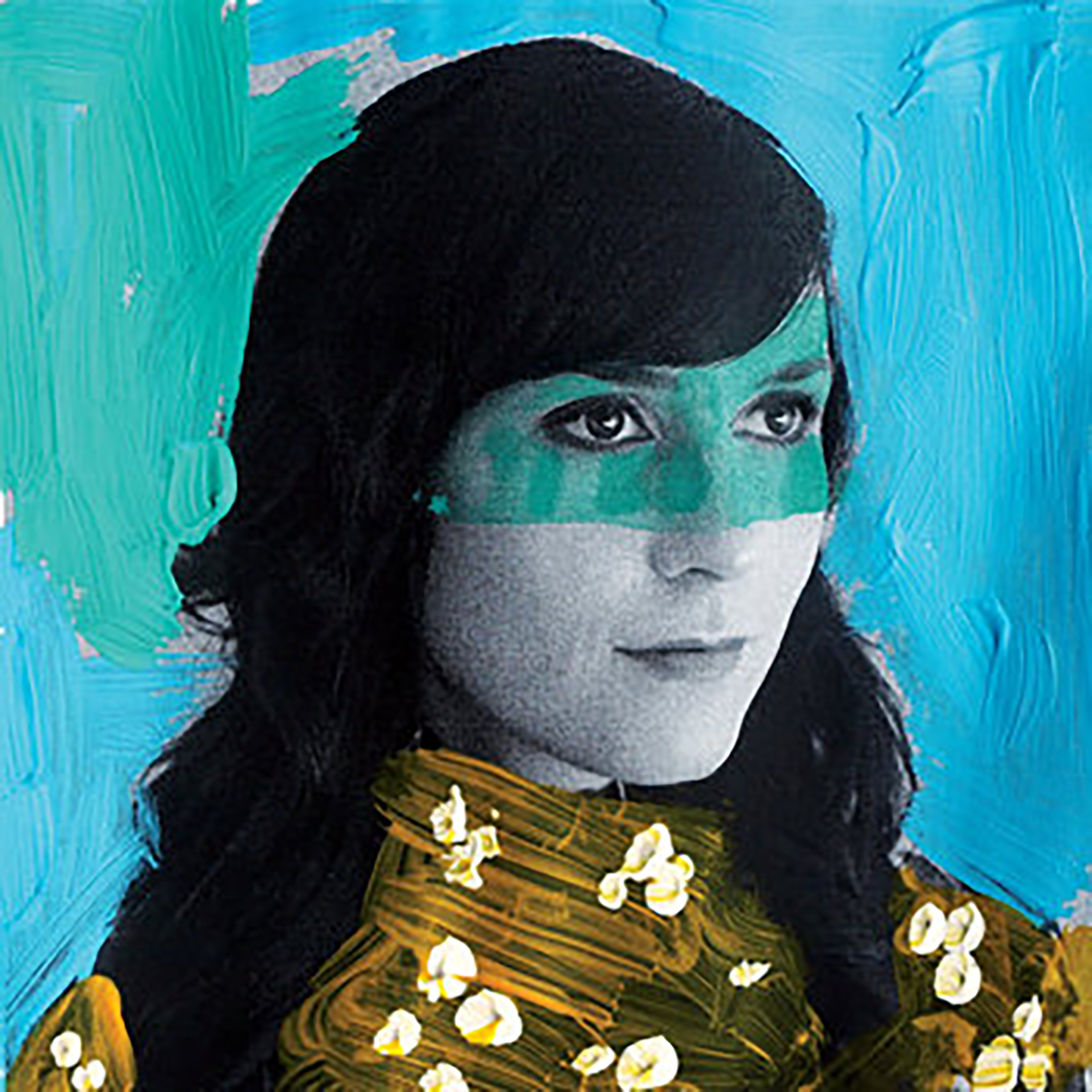 Sarah Lipstate's latest opus enigmatically borrows its title from a disorder in which those afflicted lose the ability to create mental imagery and associations (it literally translates as "without imagination"). If there is a polar opposite of that disorder, there is a strong probability that Lipstate has it, as Aphantasia is an absolute tour de force of imaginative, vividly realized visions. In fact, there are twenty-two such self-contained visions on the album and very few of them stretch beyond a minute or two in length. That can be a bit exasperating at times, as the most wonderful ideas are often some of the most ephemeral, but the sheer volume of killer motifs on display could have been the framework for four albums of great fully formed songs rather than one dazzling array of brief vignettes. That unusual album structure was entirely by design, of course, as Lipstate viewed each song as a "a short sharp flash," further noting that "if her usual process brought about cinematic results, these were something new – something swift and intriguing." The "something new" is that the album is intended as something akin to a poetry collection, and it succeeds admirably in that light while still remaining extremely damn cinematic regardless. The fragmentary nature of this album will likely garner a somewhat polarized response from fans, but I doubt that anyone will question whether Lipstate is at the height of her creative powers right now.
Sarah Lipstate's latest opus enigmatically borrows its title from a disorder in which those afflicted lose the ability to create mental imagery and associations (it literally translates as "without imagination"). If there is a polar opposite of that disorder, there is a strong probability that Lipstate has it, as Aphantasia is an absolute tour de force of imaginative, vividly realized visions. In fact, there are twenty-two such self-contained visions on the album and very few of them stretch beyond a minute or two in length. That can be a bit exasperating at times, as the most wonderful ideas are often some of the most ephemeral, but the sheer volume of killer motifs on display could have been the framework for four albums of great fully formed songs rather than one dazzling array of brief vignettes. That unusual album structure was entirely by design, of course, as Lipstate viewed each song as a "a short sharp flash," further noting that "if her usual process brought about cinematic results, these were something new – something swift and intriguing." The "something new" is that the album is intended as something akin to a poetry collection, and it succeeds admirably in that light while still remaining extremely damn cinematic regardless. The fragmentary nature of this album will likely garner a somewhat polarized response from fans, but I doubt that anyone will question whether Lipstate is at the height of her creative powers right now.
The best way to view Aphantasia is as an impressionist funhouse in which each door reveals a fleeting glimpse of something wonderful (or disturbing) that quickly dissolves to make way for the next vision. The darkest vignettes mostly arrive early on, as "Rune (for Silent Guitar)" feels like the soundtrack to a psychedelic folk horror film, while smeared and curdled synth tones of "A Valley of Snakes" call to mind a lurid, art-damaged giallo classic. Elsewhere, the more substantial "The Haunted Man" feels like a great post-rock band adding quietly smoldering accompaniment to an eerily lit Dario Argento film. The darkness resurfaces a few more times near end of the album as well, as "The Gatherer" feels like a creepy, feedback-ravaged faerie tale, while "Night/Heist" briefly resembles a nightmarishly Lynchian rockabilly band. In between and around those more haunted moments, the remaining seventeen songs are like a highlight reel of imaginary dreampop, 4AD, and goth-rock classics from the late '80s and early '90s (though they seldom make it very far beyond the opening hook). The best pieces sound like Lipstate channeled some beloved band from the shoegaze/dreampop golden age, made some sort of ingenious and welcome improvement, isolated the best part, then quickly moved onto the next challenge. In "to love / dream you," for example, she evokes a more tender and burbling Lovesliescrushing, then later repeats that same feat even more impressively with "Annalemma." Elsewhere, "Vanishing" sounds like the achingly gorgeous coda of an imagined Slowdive masterpiece, while "33" feels like a glimpse of an absolutely sublime lost Durutti Column classic. At other times, Lipstate conjures a more psych-minded Bauhaus or Santo & Johnny lost in a phantasmagoric fever dream. Throughout it all, she unleashes a characteristically dazzling host of killer effects and cool textures. I expected that part, obviously, but did not expect her to casually toss off so many gorgeous melodic themes as well. Admittedly, part of me wishes there was at least one perfect, fully realized single akin to "Deep Shelter" here, but the sheer volume of great ideas on display makes for a wonderfully kaleidoscopic and immersive whole.
Samples can be found here.
Read More

